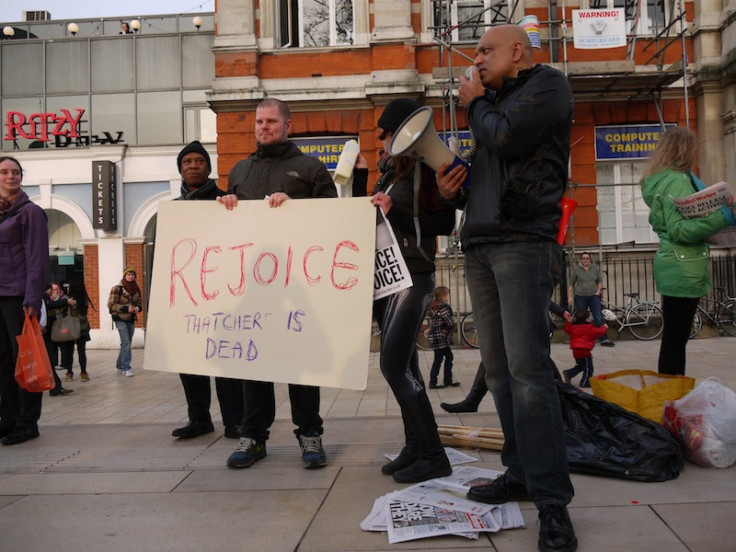Dancing On Margaret Thatcher's Grave

In seeming defiance of the generally held belief that speaking ill of the dead is tactless, the death of former British Prime Minister Margaret Thatcher has brought out the worst in some people, particularly in her native United Kingdom.
British media reported parties “celebrating” the demise of the “Iron Lady” having taken place in various cities, including Bristol, Glasgow, Northern Ireland and in Brixton, South London.
Moreover, some Labour and leftist politicians -- among them, the redoubtable George Galloway of the so-called “Respect” party -- have said they will boycott any Parliament-sponsored memorial of the late baroness.
Newspapers like the Guardian and the Mirror have only mildly rebuked those “celebrating” Thatcher’s death, while continuing to hammer away at her policies and personality. The Mirror even published a column by Roy Hattersley, former Labour deputy leader, and openly condemned her for a multitude of apparent sins.
Some Labour figures, including former Prime Minister Tony Blair and the current Labour chief Ed Miliband, have rightfully condemned these posthumous attacks on Thatcher -- while always asserting they disagreed with many of her policies.
Undoubtedly, Thatcher was an extremely polarizing political figure who amassed numerous enemies during her tumultuous term in office -- from the race riots that erupted during the early years of her tenure, to the privatizing of state-run business (and resultant huge job losses), to her assault on the trade union movement and her belligerent stance on Irish Republicans -- Maggie was indeed hated by many.
Aside from the incredibly bad taste of attacking someone who is not yet cold in her grave, there are at least two other things wrong with this orgy of hatred toward Thatcher.
No. 1: She has been out of power (and largely the public eye) since 1990, which means that an entire generation of Britons has grown up with only a faint idea of who Thatcher was, and what she represented. But some of the death-of-Thatcher-party-celebrants at parties were either children when she reigned at Downing Street, or not even born yet.
It is important to remember that Thatcher was one of the most popular prime ministers in British history; she won significant majorities in elections during the 1980s.
One must wonder, then, how deep and pervasive this antipathy towards her really is. As in the United States, a rather large “silent majority” of those in support of Lady T also exists in Britain.
No. 2: Thatcher is being vilified for being a woman in a field long dominated by men. She remains the only women ever elected prime minister, and one of the few to have ever led a powerful western nation. Had she been a man, she would’ve been praised -- even by her enemies -- for being tough, uncompromising and forthright.
Instead, some people are dancing on her grave.
© Copyright IBTimes 2024. All rights reserved.











